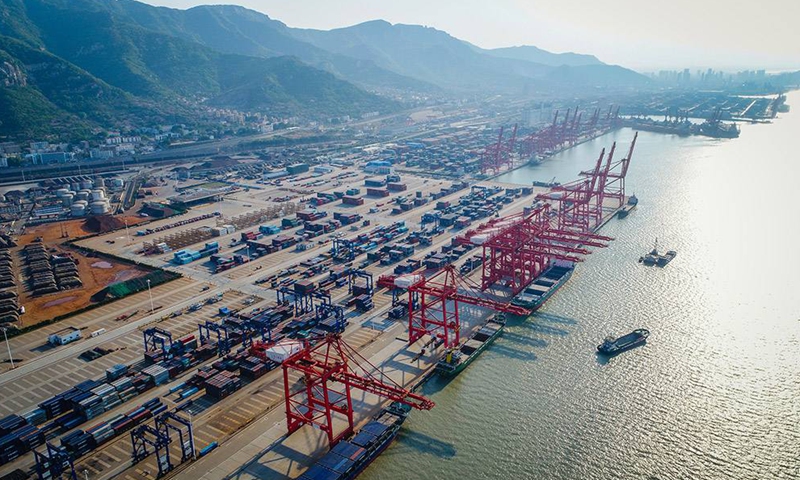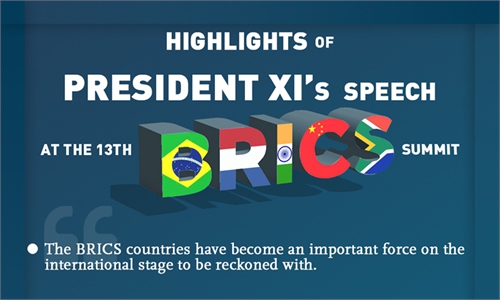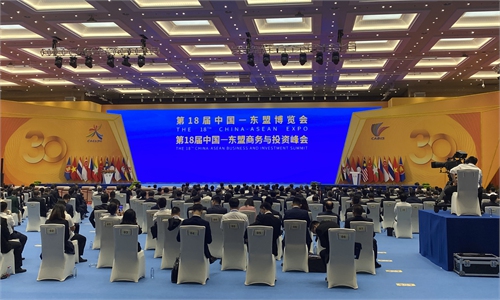US firms in China expect meeting between presidents and removal of tariffs: survey

Photo: Xinhua
US firms in China showed consistent views on relations between China and the US, in the hope of restoring trust through concrete results and actions such as regular trans-governmental communication, results of a survey conducted by the American Chamber of Commerce in China (AmCham China) showed on Friday.
The Chinese and US presidents spoke on the phone on Friday morning, during which the two leaders held candid, in-depth and broad strategic communication and exchanges on bilateral relations and issues of shared interest, the Xinhua News Agency reported.
While analysts said that there are positive signs, especially from the phone call between the two leaders, the US should make substantial efforts to promote the recovery of economic and trade relations.
More than half of US companies surveyed by the AmCham China said that their top priority is to rebuild trust through regular government-to-government communication that prioritizes concrete results and actions, while 38 percent are expecting a meeting between the two presidents by the end of 2021, according to the new flash survey.
"I predict that from the third quarter to the first quarter of next year, the two sides can begin talks and consultations," Lü Xiang, a research fellow at the Chinese Academy of Social Sciences, told the Global Times on Friday.
The Chamber did not disclose the respondents but said that 125 member companies from 21 industries including agriculture and healthcare submitted valid responses. AmCham China consists of nearly 1,000 companies operating across China, including Intel, S&P, Boeing, Coca-Cola and Disney.
Among all the priorities for the US and Chinese governments expected by US firms, 47 percent of the respondents considered the removal of bilateral tariffs, which were raised during the Trump administration, a top priority for 2021.
"The current state of China-US relations in diplomacy and trade was caused by the US. If the US does not take the initiative to adjust its posture, China's unilateral efforts will not fundamentally change the situation," Hu Qimu, chief research fellow at the Sinosteel Economic Research Institute, told the Global Times on Friday.
The US economy is slowing down and inflation expectations are strengthening. The US has to choose between economic recovery and inflation control. If China-US economic and trade relations normalize, this problem will most likely disappear. For a long time, the US has imported a large number of cheap goods from China, which has greatly reduced the risk of inflation in the US, Hu said.
According to the survey, 78 percent of respondents reported that tariffs are impacting their operations in China in some way. A survey conducted in December 2020 showed that 43 percent of companies reported no impact from tariffs on their China operations, compared with 22 percent this year.
Companies reported increased costs associated with the manufacturing of products, losing business to competitors, and weaker demand for products.
"As the pandemic continues well into its second year, the priorities for our member companies remain consistent, with the resumption of business travel at the top of the list," said AmCham China Chairman Greg Gilligan.
Sixty-two percent of respondents are keen on restoring regular visa services and channels for business executives and their dependents to travel, and 44 percent expect the restart of people-to-people exchanges for students, scholars, and journalists.
Top priorities for 2022 were slightly different from those in 2021, with 32 percent wanting to be provided with guidance on how to better support identified areas of bilateral cooperation, like climate change.
"The problem for the US is that it cannot clearly understand the changes in the balance of power in the current world. It still sticks to the mentality of decades ago, politicizing economic issues and turning political issues into ideological ones.
"It ignores China's tremendous development achievements and institutional advantages and artificially creates friction. The core difference between China and the US is that the latter believes that China should not rise. But the US has no right to stop the Chinese people from pursuing a better life," said Hu.
Lü also mentioned that officials in charge of commerce and trade in the US government are "borderline figures" and relevant issues are guided by the national security departments, which have made an assessment on bilateral trade issues for 7 months, without any result published.


